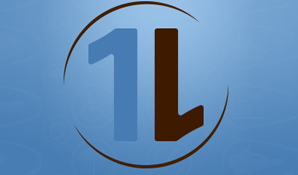Have you considered what an illness could cost you? If it is a long-term sickness or a serious accident, which require extended recuperation, have you considered how that would affect your earning ability and family?
The simple fact is that medical aids don’t always cover all the costs. A lengthy hospital stay can quickly add up to hundreds of thousands of rands, and out-of-hospital care is usually only covered by your medical savings account, which quickly runs out. At the same time, a long-term hospitalisation will keep you away from work and have an impact on your earnings.
Given all of these potential costs and risks, most people look beyond their medical aids for suitable cover for the cost of medical treatment and the costs of being away from work for an extended period. We spoke to Ricky Rohrbeck, an independent financial advisor with Select Independent Advisors, to get an overview of some of the different options, how they work, how they overlap and what their shortfalls are.
Medical aids and hospital plans
Good for: covering a portion of in and out of hospital medical expenses.
Medical aids are the starter medical cover that most families have in place. They usually comprise a hospital plan with an optional savings plan. The hospital plan covers in-hospital treatment, while the savings plan is for day-to-day medical expenses. An expensive, high-end plan has a threshold benefit, which comes into play once you have covered some medical expenses yourself, after your savings plan has run out. If you do not have this benefit, you will have to cover all additional day-to-day expenses yourself when your savings are depleted.
Be aware: Even the high-end brands and plans only cover a maximum of 200% to 300% of the medical aid rate – which is the base rate that doctors charge for each procedure or visit. Also, because the savings plan covers your day-to-day expenses, when it runs out, you will have to pay for out-of-hospital care yourself.
Gap cover
Good for: covering a medical aid shortfall
Gap cover is an affordable medical insurance that covers the shortfall in what the medical aid covers for hospitalisation. For example, if the medical aid rate for a certain procedure is R1 000, and your medical aid covers up to three times the medical aid rate (R3 000), but your specialist charges four times the medical aid rate (R4 000), your gap cover will pay the R1 000 difference. Gap cover will also cover the co-payment that you may have to make for in-hospital procedures like scopes and MRIs.
Be aware: Gap cover only covers in-hospital expenses, so it doesn’t help for long-term out-of-hospital treatment.
Dread disease cover
Good for: covering medical expenses and some income replacement
Dread disease cover pays out a lump sum if you are afflicted with a serious illness, for example Alzheimer’s disease or cancer, or if you have a heart attack or a stroke. This lump sum can make it much easier to deal with the financial strain of not being able to work as well as funding any shortfall in your treatment.
Be aware: There is a sliding scale for the amount that is paid out – so for example, you might be paid 5% of the insured sum if you are diagnosed with a melanoma, but 100% of the insured sum for stage 4 terminal cancer.
Emergency savings
Good for: short-term medical or financial emergencies
Every person should have an emergency savings fund that covers three months salary or six months of your expenses. Keep at least one month’s worth in an interest-earning savings account, so that you can access it easily if you need it. The remaining amount, you can put into low-risk unit trusts, so that your emergency funds are unlikely to lose value with market volatility. This gives you a little breathing room if you find yourself in a difficult medical or financial situation.
Be aware: It can be difficult to save up three months worth of your salary. Don’t let that defeat you, start with whatever you can and slowly build your nest egg.
Making it work for you
There are many medical cover options out there – and if you read up about them, you probably feel that you need all of them. However, purchasing so many different policies can get expensive, so it becomes important to prioritise. Ricky explains how to approach this.
“If you are a single person with no debt, then you have no need for life insurance. If you have children or dependants, then life insurance is a must – that’s at the bottom of the pyramid. Then consider an income disability product and a dread disease product so that if you become ill or unable to work, you still have an income and can still look after yourself. Next comes medical aid and after that, gap cover.”
However, each person’s financial situation is different, so when considering your portfolio of medical cover, it’s best to speak to your insurer or broker to make sure that you have the products best suited to your needs.




